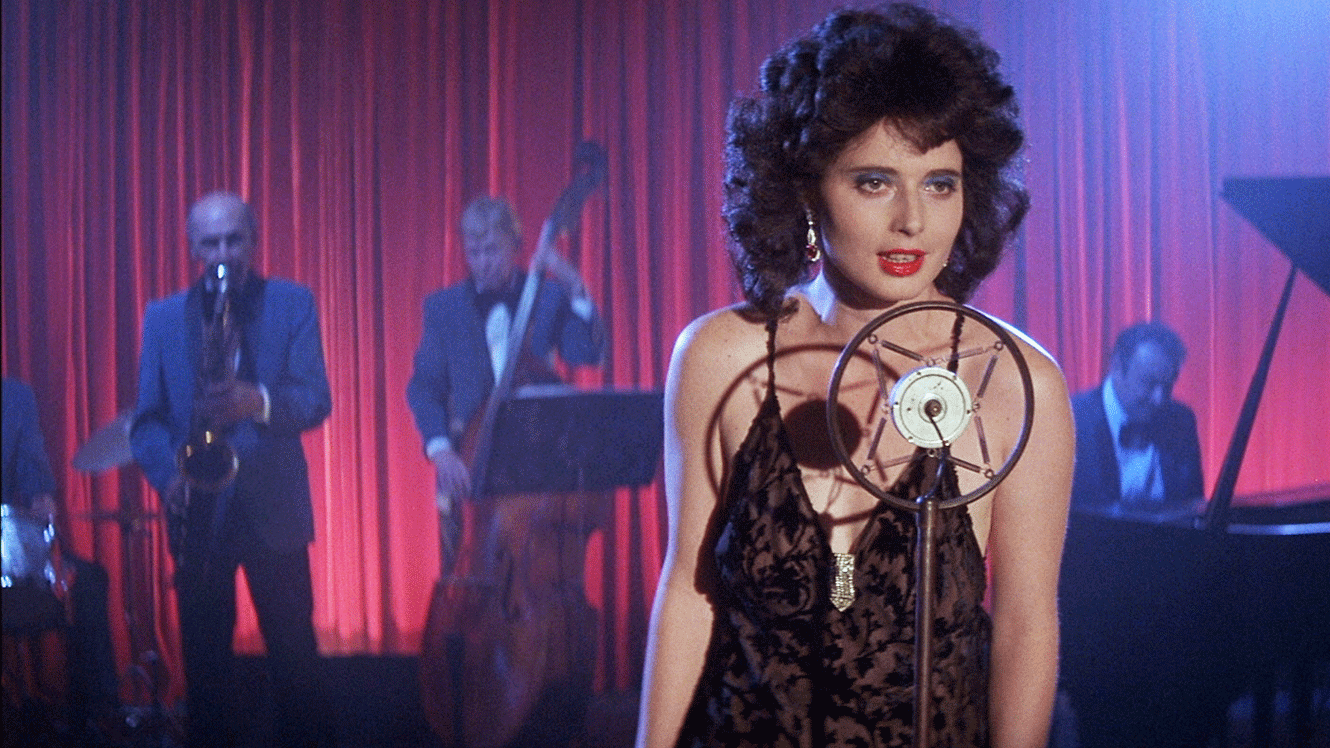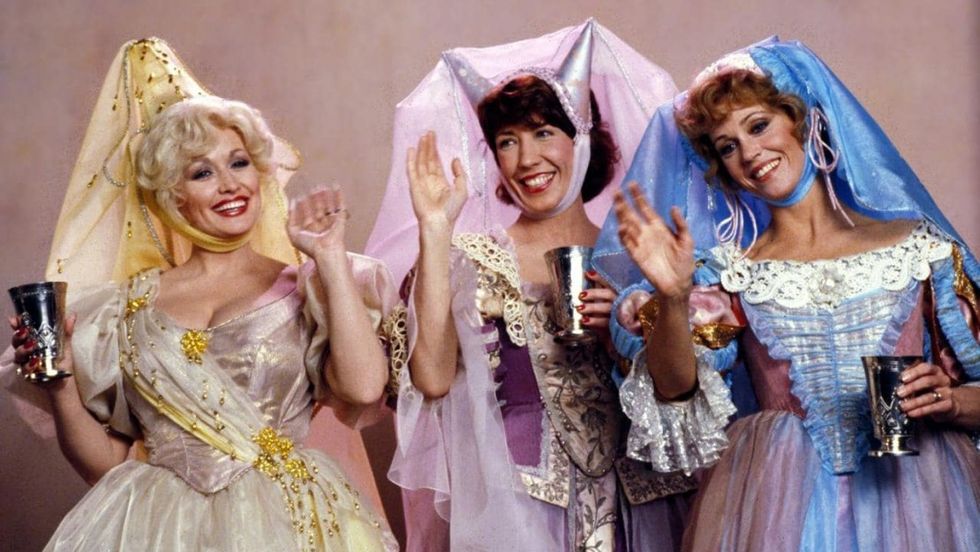9 Lessons on How to Perfect Your Pitch
Learn from industry gatekeepers on what it takes to get into the room and sell your project.

Even more than "networking," "pitch" is a word that sends chills down the spines of most filmmakers. Some don't know how they could possibly condense their beloved film into just a few minutes, others freeze up in the room and can't say anything. No matter how you slice it, pitching can be terrifying. Again, it's that conundrum of artists in the position of sales people. But as IFP's Screen Forward Conference panelist Lucy Stille said, "It's called 'show business' for a reason. Emphasis on business."

Sharing their hard-earned knowledge were panelists Josh Braun (Co-President of Submarine), Cullen Conly (Motion Picture Literary Agent, ICM), Yoni Liebling (VP of Development, Red Crown Productions), Negin Salmaso (VP of Creative Affairs, See-Saw Films), and Lucy Stille (Motion Picture Literary Agent, APA). The panel was moderated by veteran studio executive and NYU Arts Chair, Joe Pichirallo. Together, they dissected the art of the pitch. Here are nine takeaways from their panel.
1. Know the difference between an agent and a manager
Before they got down to business, the panelists were asked to clarify the difference between an agent and a manager—an often-confusing differentiation. Stille, the most veteran agent on the panel, took the reins. "Agents are licensed and have to sign that they would abide by all the rules of the Writers Guild, Directors Guild, and Actors Guild," Stille explained. "Managers are not licensed or overseen by anything, and managers technically are not allowed to make deals. Agents and lawyers are allowed to make deals."
"It's a subtle distinction, there are many managers that were former agents that like to be as active as agents," Stille continued. "Managers are supposed to have the sort of overview of the career, whereas agents are specifically there to find you employment and to negotiate those employment deals."
Additionally, "Managers usually have fewer clients. Agents tend to have bigger lists than managers are supposed to, because they're looking at the career as a whole long term, they're supposed to take on fewer clients and really think about all the aspects of that person's career." So, if you're not already repped, consider both sides before reaching out.
"You know more people than you know."
2. Find a champion for your project
Now that we've covered some definitions, let's step it way back before the pitching even begins. You've written a script, now how in the world do you get anyone to read it?
"I think if you have a script in hand, an agent could always be a best place to start," said Conly. "From there, they can help decide which ten production companies are looking for this kind of material, assuming they want to work with you. It's much harder to go directly to a production company, as they take things a lot more seriously when it comes via an agent as opposed to direct."
"If your director is unknown and you're all sort of unknown, then it's going to be a different dynamic than if some of you are represented," noted Braun. "If you're completely unknown, then you're just basically trying everything you can to get to people."

3. Build your network to get into the room
However, "everything you can" does not mean cold emailing. "Most production companies and financiers don't take blind submissions, and most of what I see and read comes through agents or managers or personal relationships I have," said Salmaso frankly.
It can feel unfair to those just breaking into the industry, but most companies maintain this policy for legal reasons. "For example," explained Salmaso, "if I take that submission or if I read that script, and maybe somewhere down the line, we create something related to that story, that's a liability issue." Gone are the days of dropping a script in every mailbox. Hollywood has litigated too many lawsuits.
"Everybody here is looking for somebody who hasn't yet made a name for themselves."
"Not to make this sound discouraging," said Pichirallo, attempting to cheer up the room. "The reality is, everybody here is looking for somebody who hasn't yet made a name for themselves. Everybody here is predisposed to discover the next Alexander Payne or Patty Jenkins, so that's the flip side of this."
"You know more people than you know," added Stille. So, get on LinkedIn and do some research. Believe it or not, the key to your success could be a reference from your middle school friend's cousin's accountant.
4. Avoid the most common mistakes in pitching
Alright, assuming you've gotten into the room, Pichirallo asked the panelists to list their biggest pet-peeves for first-time pitches.
- Telling the story from A to Z. "Well, the classic is to do it very linear: first this happened, then that happened," said Stille. "Pitching is about getting to the essence of your project, what makes it sexy and different. You've got to start macro and go micro." Going over the whole thing can be exhausting for the listener, she continued. "A pitch is a sales tool, and it is ultimately reductionist. So, telling every jot and tittle of your project is not going to be effective. The executive's eyes are going to glaze over."
- Pitching a story that could be told by anyone at any time. "I always need to know: what is the reason for being? Why does this movie need to be made, and why does it need to be made now?" said Conly. "I tend to connect with people that have a very personal story." Salmaso agreed, "What makes it interesting is the creator."
- Inauthenticity. "For me, it's authenticity," said Liebling. "We look for something with an honesty to it, it's feeling like this is going to stand out against what the rest of the competition looks like."

5. Save the "Taxi Driver meets A Bug's Life" for another time
Yes, it IS possible to be too prepared. Sometimes, coming into a pitch with too much marketing on the brain can actually hinder your storytelling. Especially when it comes to identifying future audiences, something Stille says is a major no-no. "I don't want you to tell me who you think the audience is. I want you to tell me why you want to make the movie. Let me figure out who the audience is. I think that's presumptuous on your part, you haven't done it long enough. That's not what you are, you're not a distributor or a marketer. So, I think that's actually a negative."
Conly agreed, with a caveat. "Unless I personally read the script or the treatment and have no idea who wants to see this movie." In that case, he may ask about the imagined audience.
"I don't want you to tell me who you think the audience is. I want you to tell me why you want to make the movie."
The discussion turned to comps (also known as comparable films). "I go back and forth," said Conly, "I think if it's too derivative, then it can work against you, but I also think sometimes it's really helpful to have a touchpoint or two. But personally, I hate when people say, 'it's Jurassic park meets this' and that's your one liner."
"Well, what do you think the function of a comp is?" questioned Stille. "One of the functions of comps are tone. You're telling a story and we need to understand, is this a thriller? Is this a drama? if you reference a film that's comedic, you're sending me, the listener, a sense of what your film is."
6. Never comp a failed film, unless...
But, she added, "do not comp a film that has not been successful. That hurts you. You may love the film, but it is not useful." With respect to this statement, an audience member asked about acknowledging marketing pitfalls that your project may have, so as not to appear naïve. Salmaso said to save that kind of thing for afterwards. "When you're pitching your project, you should have full faith in it." Full stop.
"At the end of a pitch," she said, "the exec will ask you questions and you can address them in that moment. If you have a smart exec, that person will ask you."
"And sometimes you can actually head it off because you know it's going to be an issue, so you address it in a positive way, not a negative way," Stille added.
Success can mean different things, though, Pichirallo pointed out. In terms of a tonal reference, it can be okay to use a comp "that was artistically well received by critics, and may have won awards, even though it might not be a box office success."

7. Know who you're meeting (and remember they're human too)
"You have two people in a room, not two robots," said Salmaso at one point, drawing attention to a fact that is easily forgotten in the stress of a pitch. But remembering this can be key to selling your project.
"Pitching, like anything else," mused Pichirallo, "is about understanding human nature. If you get a lot of information thrown at you at once, you start losing track."
Your representation can be a good resource for helping you plan your approach, Stille added. They will have a relationship with this person and help you understand their personality. "There are people, for example, who will never crack a smile in a room," she said. "You need to know that, and know that it's not personal, it's not about you, that's how they are all the time, so it doesn't freak you out."
"Pitching, like anything else, is about understanding human nature."
More basic than knowing what they're like, you must understand what they do. It can be detrimental to your relationships to pitch your project to the wrong person at the wrong time. Braun said, "Sometimes, I get these pitches where it doesn't really fit with what we're doing. Our company is a sales company and we produce, so if it's not ready for one of those areas at the right time, then it's kind of like not exactly what I want to spend my time on."
On the flip side of that, "If it's something I didn't know about, and I'm intrigued, then I'll sometimes put it into the future reference file." So, be conscious of how you're framing your ask.

8. Use your rep for practice
"One of the jobs of agents is to help you prep your pitch," noted Stille. "Agents do it for a living every day, so it's very good to use your reps to test out your ideas. We can say, 'You're starting in the wrong place, start with the character, that's the most important thing.' If you're doing Mad Max, you start with that character. So, don't be afraid to use your agents for that. We are resources."
9. Practice pitching other films
"A very good exercise is to take a film you already know, and see if you can reduce it and tell what it is in five minutes," suggested Stille. "Can you tell Legally Blonde in five minutes? Can you tell The Bourne Identity in five minutes?" Easy. "There are movies that are not pitchable, they're too complicated. Try to pitch Boogie Nights. Really hard. It's a very good exercise for you to take something like that and figure out what the money in that piece is, and pitch it."
However, she added, "If you're a director, it's a whole different ballgame because you have to bring visuals. You have to have a sizzle reel, you have to have a look book, you have to have something, because you are the captain of that ship and they want to know what your creative vision for the project is. So, you need stuff that you bring with you. That is not necessarily the same for a writer."
Need some more pitching advice? Be sure to check out our recent podcast, Pitching Do's and Don'ts: How to Get Your Film Funded.
Featured image: Isabella Rossellini in 'Blue Velvet'. Rossellini is represented by APA. Credit: De Laurentiis Entertainment Group











